Abstract
A syndrome which was first described by G.G. De Clerambault in 1885 is reviewed and a case is presented. Popularly called erotomania, the syndrome is characterized by the delusional idea, usually in a young woman, that a man whom she considers to be of higher social and/or professional standing is in love with her. She develops an elaborate delusional process about this man, his love for her, his pursuit of her, and her inability to escape his “affectionate clutches.” This syndrome may persist for a period of a few weeks to a few months in the recurrent form and be replaced by a similar delusion about another man. In the fixed form, which is the example of the case being presented here, it may persist for several years. The patient presented here has experienced this syndrome for eight years; there are reports in the literature of persons maintaining the syndrome for longer than 25 years.
Patients with this syndrome may be diagnosed as having paranoid vera or other forms of paranoid disorder, or as paranoid schizophrenic. In light of the overwhelming nature of the delusional process affecting this patient's total life experience with marked delusions of persecution, grandeur, jealously, and self-depreciation as well as ideas of reference (illusions), and agitated and sometimes bizarre behavior, it seems quite appropriate that her diagnosis may be termed schizophrenic reaction, paranoid type.
The literature is surveyed in depth and the case is presented in sequential detail.
Full text
PDF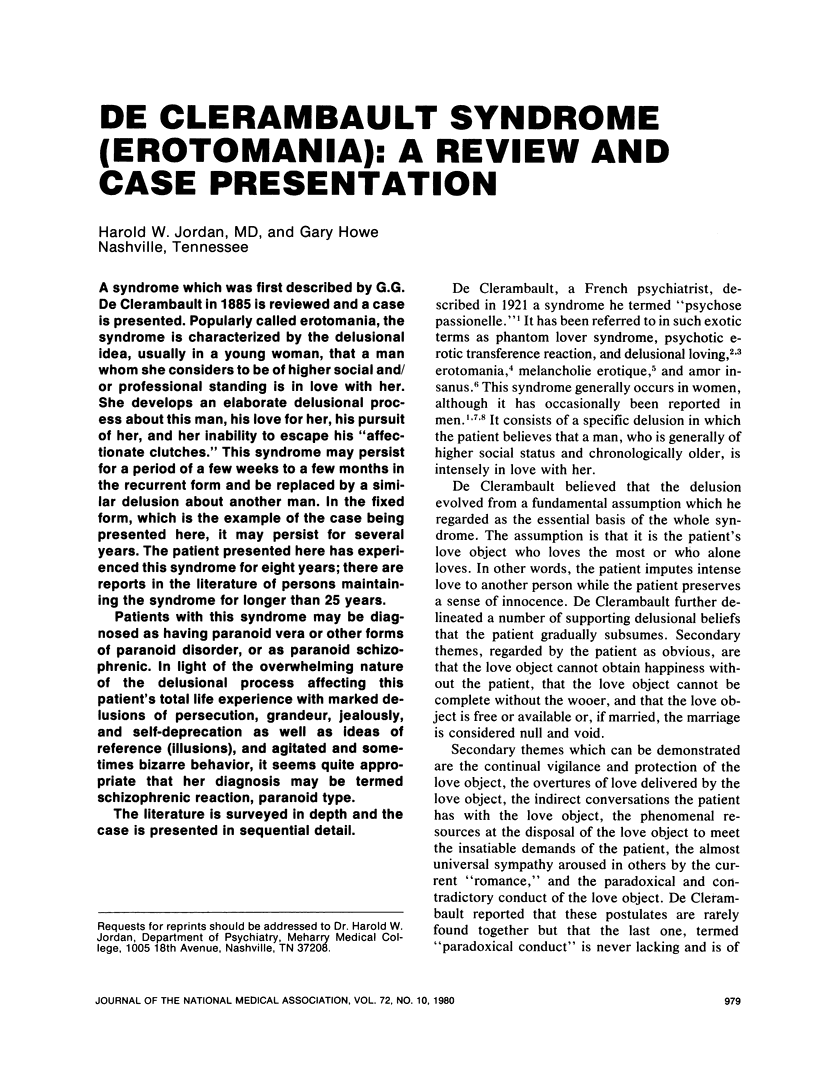
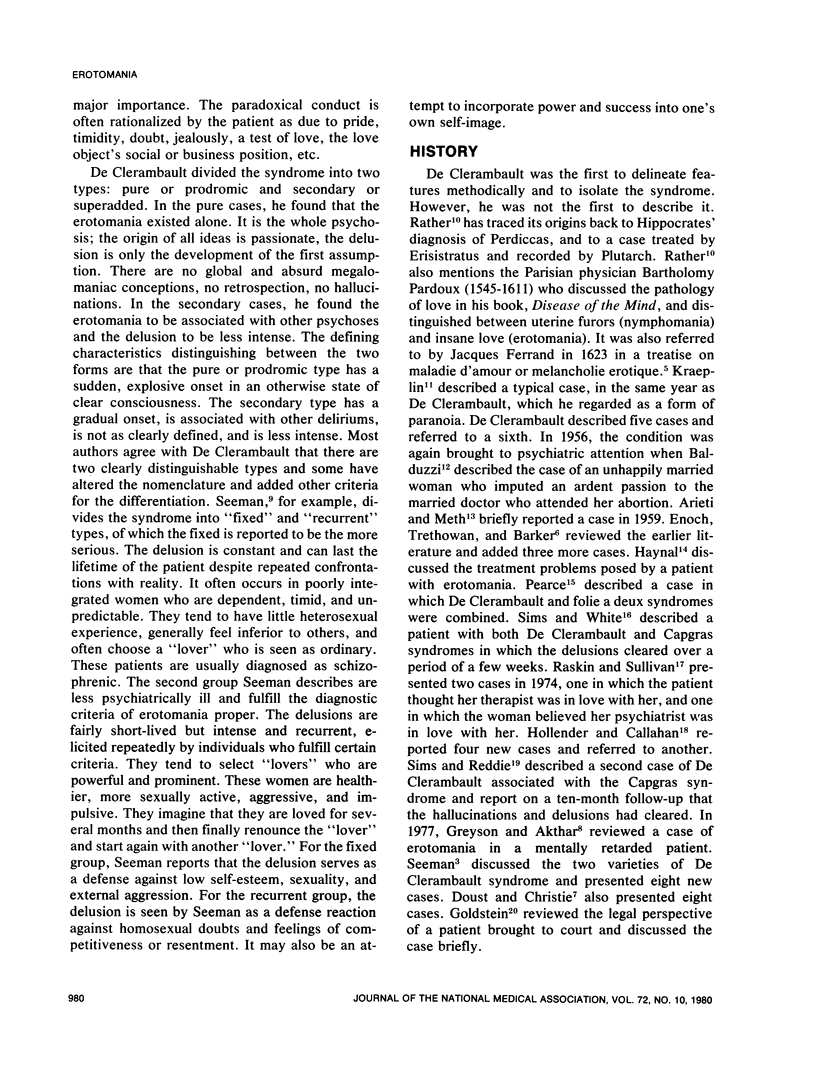
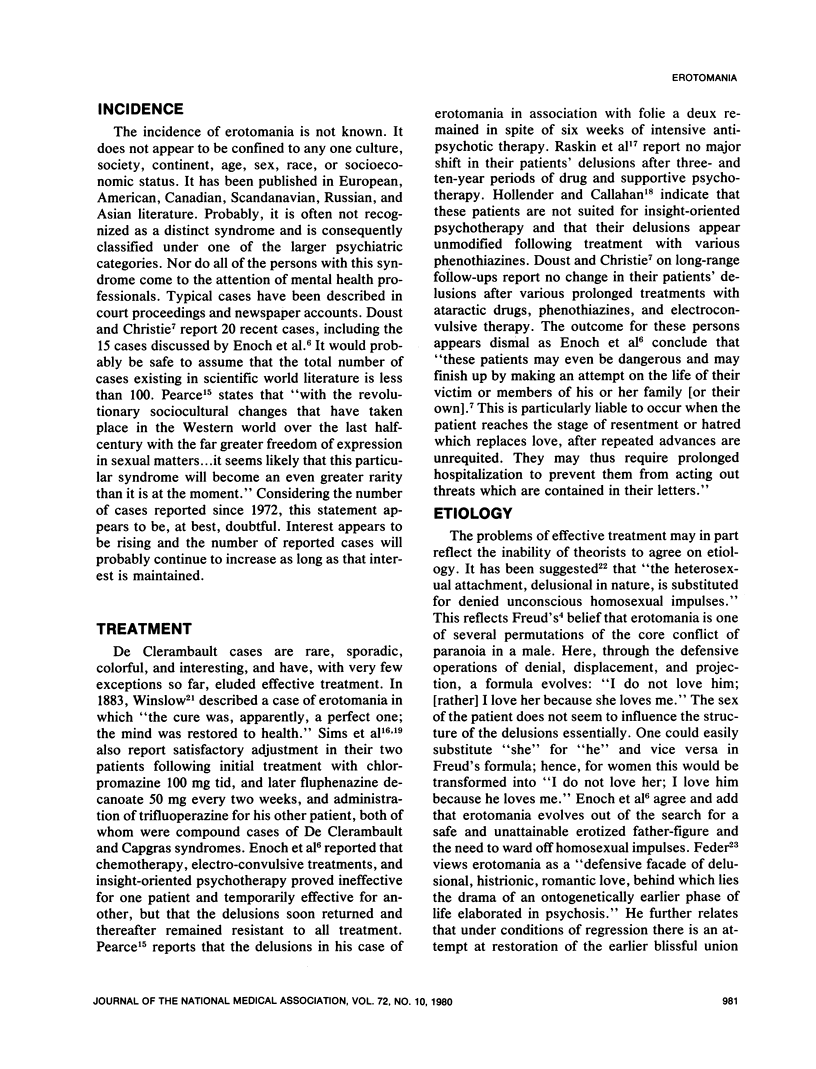
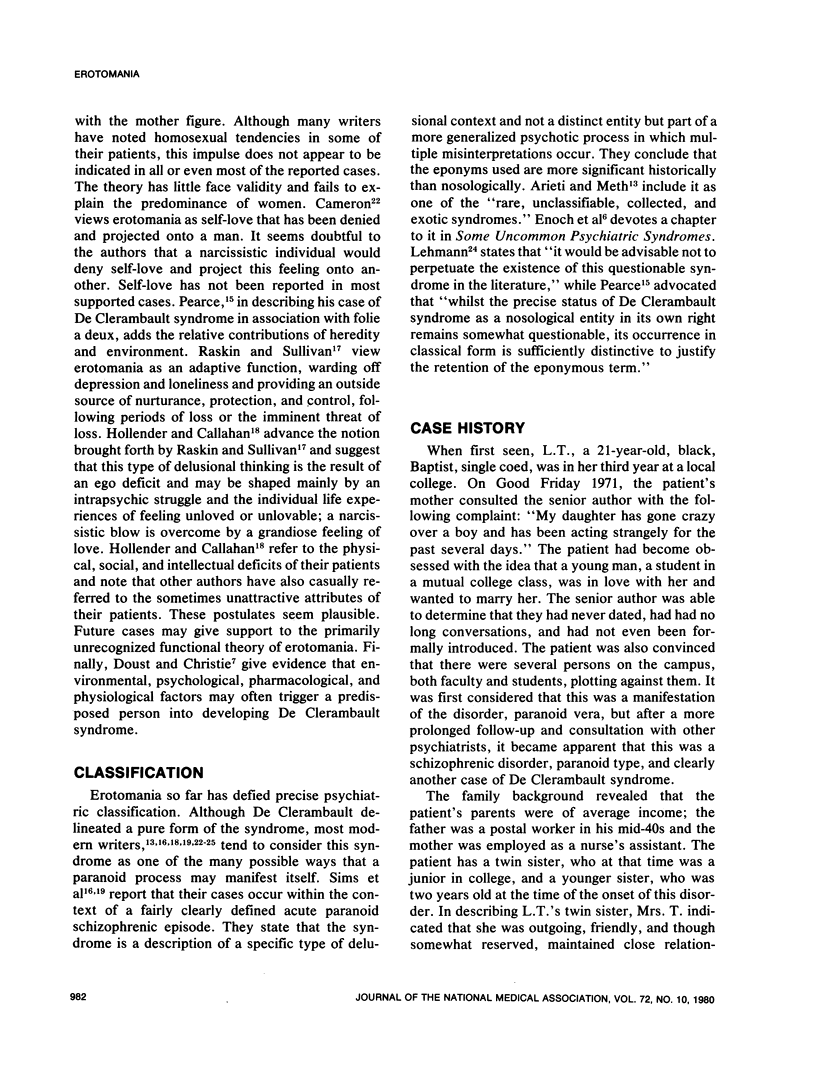
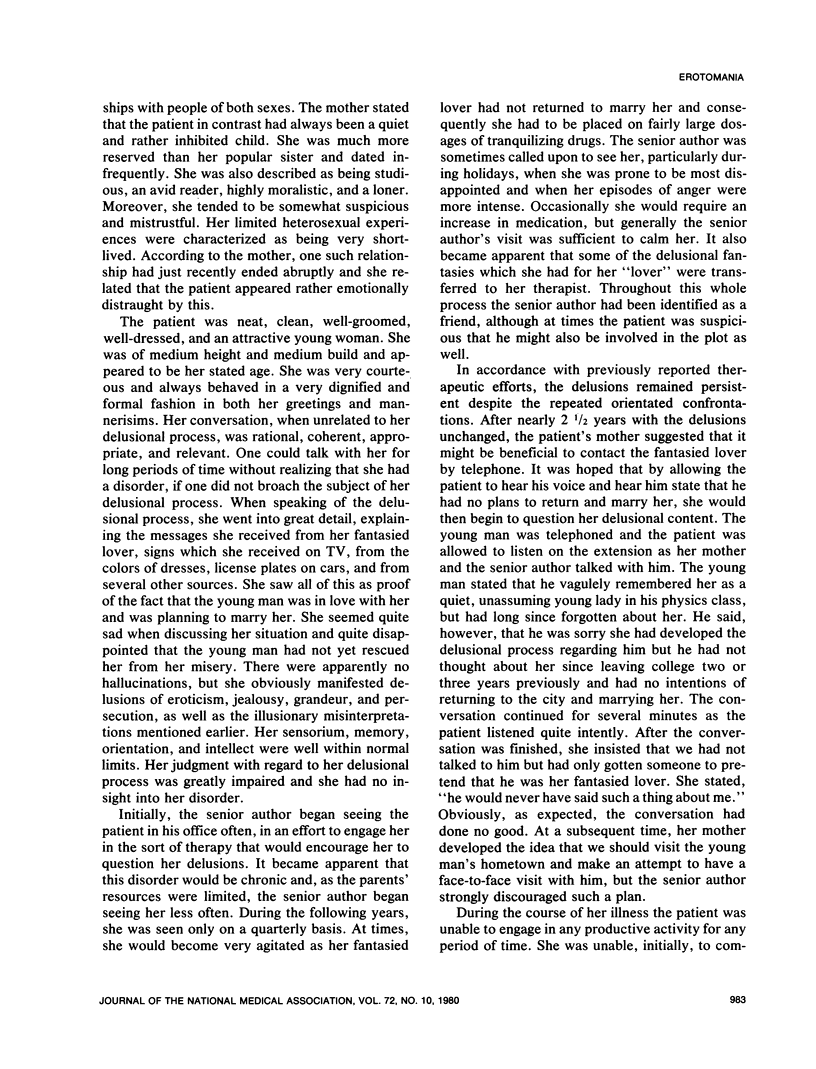
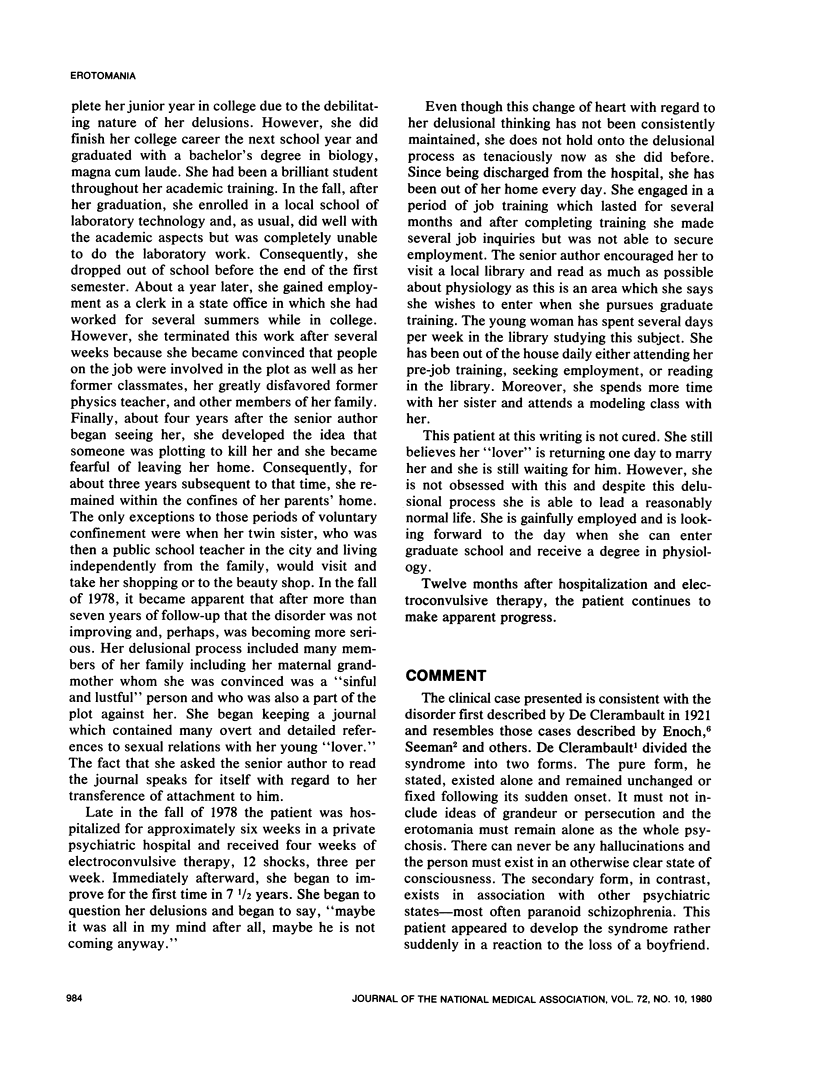
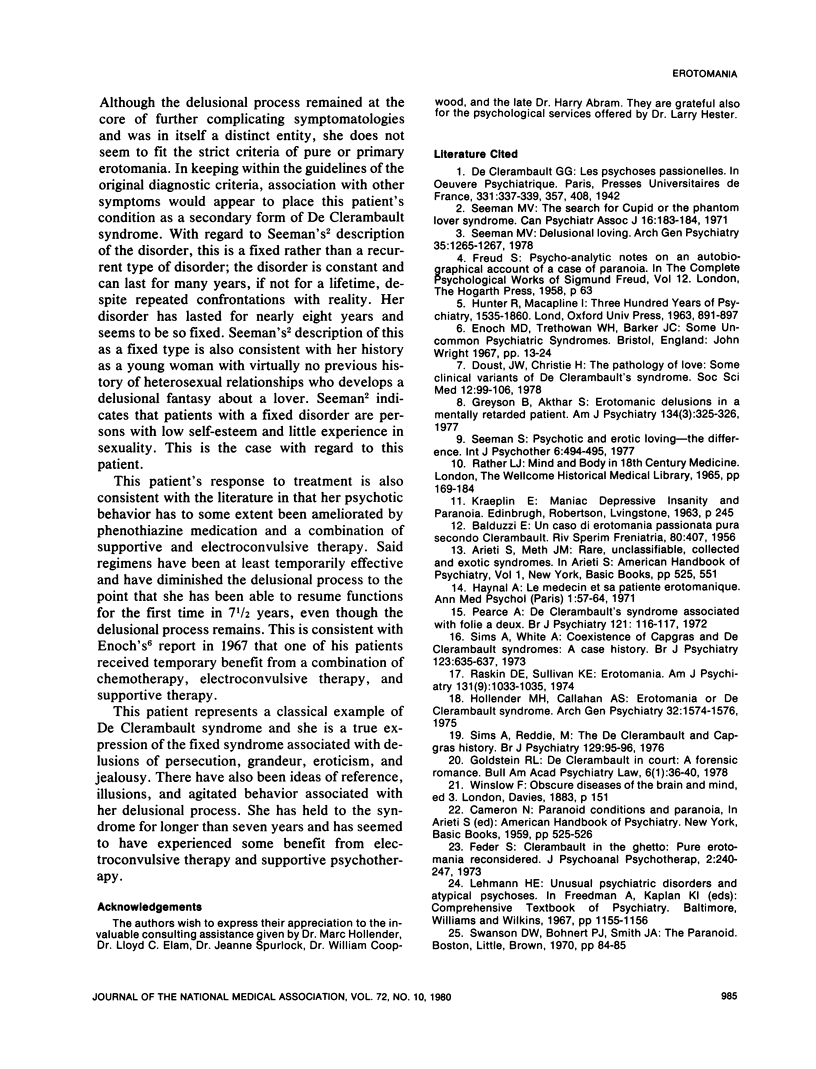
Selected References
These references are in PubMed. This may not be the complete list of references from this article.
- Doust J. W., Christie H. The pathology of love: some clinical variants of De Clérambault's syndrome. Soc Sci Med. 1978 Mar;12(2A):99–106. [PubMed] [Google Scholar]
- Goldstein R. L. De Clérambault in court: a forensic romance. Bull Am Acad Psychiatry Law. 1978;6(1):36–40. [PubMed] [Google Scholar]
- Greyson B., Akhtar S. Erotomanic delusions in a mentally retarded patient. Am J Psychiatry. 1977 Mar;134(3):325–326. doi: 10.1176/ajp.134.3.325. [DOI] [PubMed] [Google Scholar]
- Haynal A. Le medein et sa patiente erotomanique (contribution à la notion de "guérison dans le transfert") Ann Med Psychol (Paris) 1971 Jan;1(1):57–64. [PubMed] [Google Scholar]
- Hollender M. H., Callahan A. S., 3rd Erotomania or de Clérambault syndrome. Arch Gen Psychiatry. 1975 Dec;32(12):1574–1576. doi: 10.1001/archpsyc.1975.01760300112010. [DOI] [PubMed] [Google Scholar]
- Pearce A. De Clérambault's syndrome associated with folie à deux. Br J Psychiatry. 1972 Jul;121(560):116–117. doi: 10.1192/bjp.121.1.116. [DOI] [PubMed] [Google Scholar]
- Raskin D. E., Sullivan K. E. Erotomania. Am J Psychiatry. 1974 Sep;131(9):1033–1035. doi: 10.1176/ajp.131.9.1033. [DOI] [PubMed] [Google Scholar]
- Seeman M. V. Delusional loving. Arch Gen Psychiatry. 1978 Oct;35(10):1265–1267. doi: 10.1001/archpsyc.1978.01770340115013. [DOI] [PubMed] [Google Scholar]
- Seeman M. V. The search for Cupid or the phantom-lover syndrome. Can Psychiatr Assoc J. 1971 Apr;16(2):183–184. doi: 10.1177/070674377101600216. [DOI] [PubMed] [Google Scholar]
- Sims A., Reddie M. Letter: The De Clérambault and Capgras syndromes: a case history. Br J Psychiatry. 1976 Jul;129:95–96. doi: 10.1192/bjp.129.1.95. [DOI] [PubMed] [Google Scholar]
- Sims A., White A. Coexistence of the Capgras and de Clérambault syndromes. A case history. Br J Psychiatry. 1973 Dec;123(577):635–637. doi: 10.1192/bjp.123.6.635. [DOI] [PubMed] [Google Scholar]



